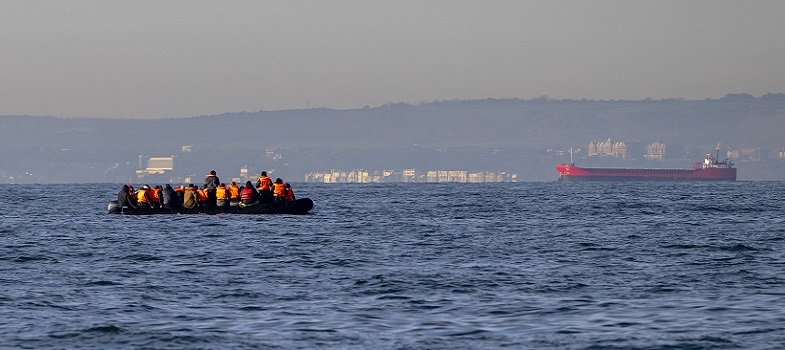4.5.1 Protocols supplementing UNTOC
UNTOC is an international treaty relating to the prevention of serious, transnational, organised crime. Two supplementary protocols to this Convention are particularly important to focus on in relation to people smuggling and human trafficking: the Protocol to Prevent, Suppress and Punish Trafficking in Persons, Especially Women and Children (Protocol to Prevent Trafficking) and the Protocol against the Smuggling of Migrants by Land, Sea and Air (Protocol Against Smuggling).
The nature of people smuggling and human trafficking differ considerably. Smuggling occurs when payment is made for unlawful means of entry into a country. Trafficking relates to the movement of people across borders for the purpose of exploitation; they are unable to consent to their movement due to threat, force, and/or deception. Both protocols relating to these acts warrant their criminalisation.
Articles 5 and 6 in the Protocol to Prevent Trafficking and the Protocol Against Smuggling, respectively, identify the requirement for contracting states to adopt legislative measures to establish criminal offences of people trafficking and people smuggling for financial or material benefit. Equally, both protocols make the importance of border measures to tackle smuggling and trafficking of people very clear.
However, these articles relating to border measures offer similar text (Article 11 of both protocols). They set out the obligations of states to commit to strengthening border controls to tackle the crimes of people smuggling and human trafficking, as well as preventing commercial carriers from being used in the commission of an offence. Although, such obligations are caveated by the fact that they must be ‘without prejudice to applicable international conventions’ (Article 11(3)) and measures taken must only be ‘to the extent possible’ (Article 11(2)).
In this respect, what does that suggest about the relationship between these obligations and, for instance, the obligation to rescue as set out in SOLAS?
Overall, the obligation to rescue lives in distress at sea is absolute. Various anti-trafficking and anti-smuggling conventions exist and present obligations on states to criminalise certain conduct and develop border measures in order to tackle human trafficking and people smuggling. However, the Protocol to Prevent Trafficking and the Protocol Against Smuggling makes it clear that these obligations do not supersede the need to assist those in distress at sea.
The European Union Agency for Fundamental Rights has also repeatedly, as stated by them, ‘underlined that actions against migrant smuggling must not result in punishing people who support migrants on the move for humanitarian considerations, including persons working for NGOs saving lives during search-and-rescue operations’ (europa.eu [Tip: hold Ctrl and click a link to open it in a new tab. (Hide tip)] ).
4.5. Duty in relation to people smuggling and human trafficking
